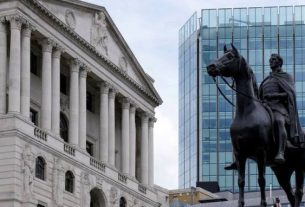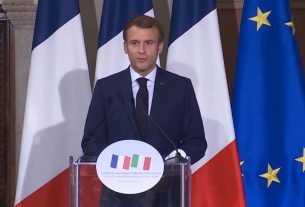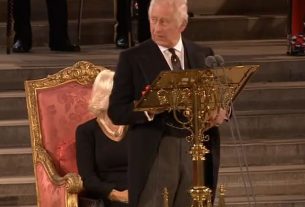Households and businesses are alarmed by reports that energy prices – already at record levels – could be set to rise even further through the government’s new “green” levy on gas.
The new charge will add up to £170 per year onto household gas bills from 2023, according to a report in the Times. The government’s strategy – to impose a levy on gas bills to fund low-carbon heating while committing to cut electricity costs – will be published in the run-up to Cop26 in Glasgow, which starts at the end of this month.
News of another gas price hike follows warnings to ministers that households’ average annual energy bills could hit £2,000 in 2022, if wholesale prices continue to rise. British business and households will also be liable for the cost of energy suppliers going bust – which will be between £1 billion and £3bn, according to Paul Richards, the chief executive of Together Energy.
‘UK government has done nothing’ – UK Steel boss
Labour said the government is in denial about the impact of gas prices which have risen 250% this year. Households are bracing for a massive price hike next year, even with the limited protection of the energy price cap.
Businesses do not have that protection and leaders from the UK’s energy-intensive industries – including glass, steel, paper, cement, ceramics, chemicals and lime – met with business secretary Kwasi Kwarteng – amid warnings factories may be forced to shut down, resulting in closures and job losses.
Dr Richard Leese, chair of the Energy Intensive Users Group (EIUG), said he proposed three solutions to Kwarteng – cost containment measures, distribution of network costs, and emergency measures to “prevent lasting damage to very expensive plants and equipment” caused by rapid shut down – none of which have been acted on.
Director of UK Steel, Gareth Stace was also at the meeting and told Channel 4 News that industry is asking the government “to just step in, to alleviate the pressure [of wholesale prices] in the short term, just like in say, Portugal or Italy.
“Their governments are already investing many billions of euros to help their industries and the UK government has yet done nothing.”
Supply chain crisis – PM turns to ex-Tesco boss ‘to save the golden quarter’
According to the Office for National Statistics (ONS), one in six adults – almost nine million people – in Britain were not able to buy essential foods, between September 22 and October 3, because products were unavailable.
Figures from the ONS survey evidence the impact of the supply chain crisis and labour shortages. The fuel crisis saw 15% of respondents unable to buy fuel at a petrol station over the two-week period. Shop shortages and empty shelves have been most common in the north-east and the east Midlands where 21% of adults were unable to make the purchases they needed.
Boris Johnson has called in former Tesco boss, Sir David Lewis to be the government’s new supply chain adviser, reporting directly to the PM and Stephen Barclay, the new Chancellor of the Duchy of Lancaster.
Lewis – who is also chair of the WWF – will suggest “immediate improvements and any necessary long term changes to UK supply chains for goods” according to Downing Street, while Retail Week report, his mission is “to help solve the supply chain chaos that is threatening to overwhelm the golden quarter and Christmas.”
‘It could all build up to be an absolute nightmare’ says minister
The supply chain crisis has seen empty shelves in shops and empty pumps at petrol stations. Pubs have run out of beer while a critical shortage of butchers in the meat industry is already seeing pigs being culled on farms and removed from the food chain.
People have been warned that Christmas will be a “nightmare” but Johnson told reporters this week he is not worried about the rising cost of living or the shortages. He may not be, but Conservative MPs certainly are and some ministers have expressed their fear that inaction will result in “a nightmare” by Christmas.
“It could all build up to be an absolute nightmare for both the public and us, especially if – in the next few months – the economy goes into negative growth that we could have done more to prevent,” said one frontbencher, quoted by the Guardian.
Adam Smith Institute – ‘PM is vacuous and economically illiterate’
Johnson’s big conference speech has been called “economically illiterate” by the right wing Adam Smith Institute, who, along with business leaders, have been heavily critical of the evident lack of a coherent plan for the economy.
Head of research at the ASI, Matthew Lesh said the PM’s “rhetoric was bombastic but vacuous and economically illiterate. This was an agenda for levelling down to a centrally-planned, high-tax, low-productivity economy.”
Lesh said the PM “is hamstringing the labour market, raising taxes on a fragile recovery and shying away from meaningful planning reform,” and added: “Shortages and rising prices simply cannot be blustered away with rhetoric about migrants. It’s reprehensible and wrong to claim that migrants make us poorer.
“There is no evidence that immigration lowers living standards for native workers. This dogwhistle shows that this Government doesn’t care about pursuing evidence-based policies. We can both control migration and allow migrants to fill skill gaps.
Lesh was similarly scathing about the “levelling-up” policy which “so far consists of little more than listing regions and their local produce. Boris throws out impressive-sounding economic terms like ‘pareto improvements’ to hide the fact that he lacks policies to drive growth.”




